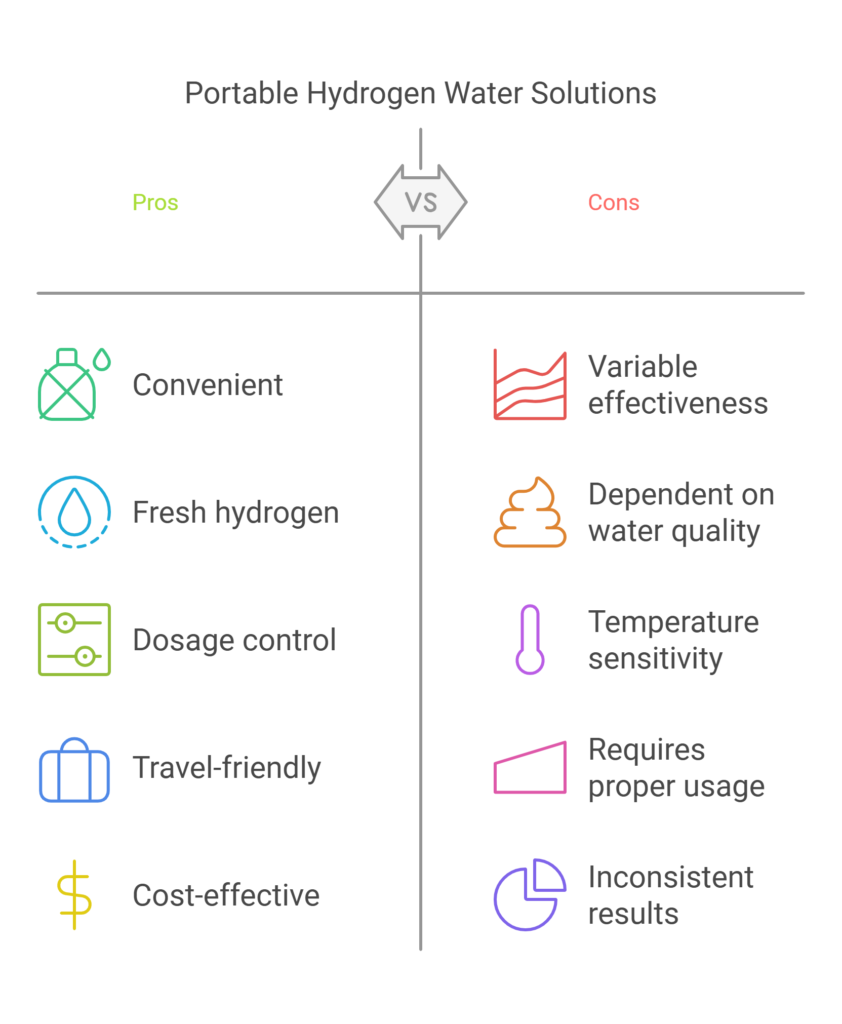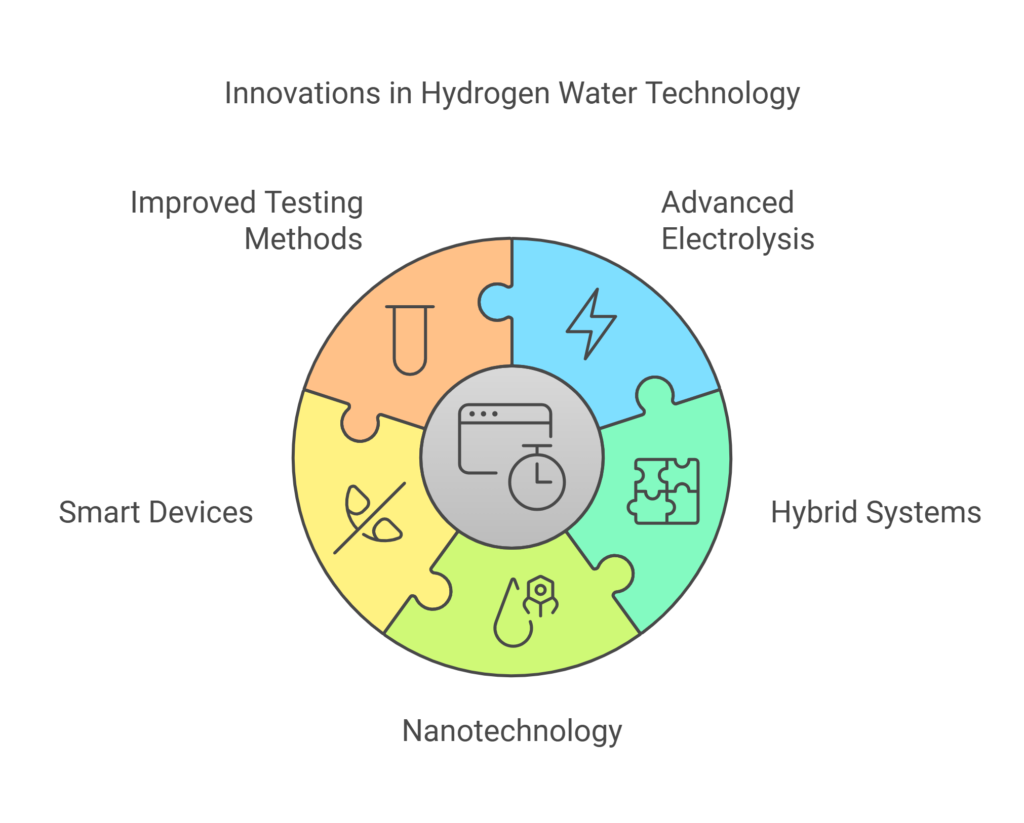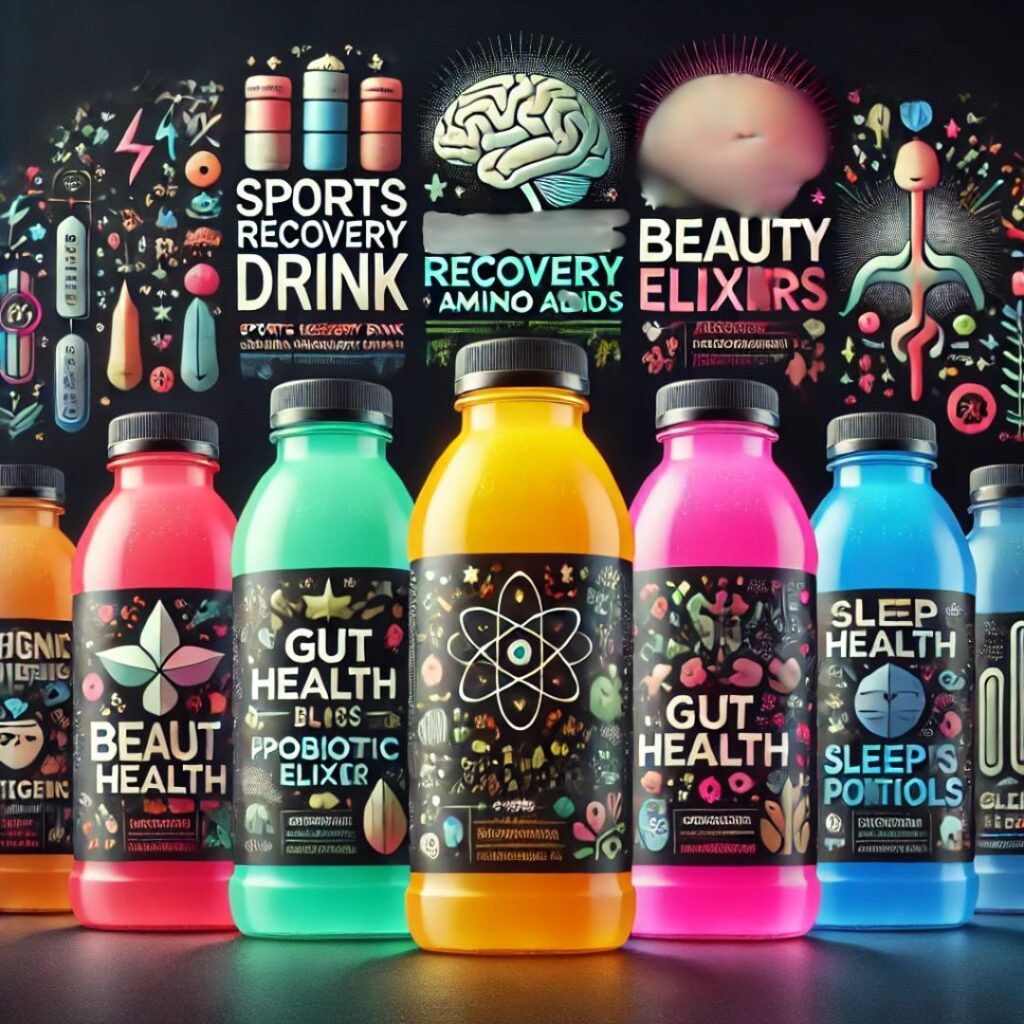The hydrogen water market has undergone a remarkable transformation since 2021. As someone who’s been closely following this industry, I’ve seen firsthand the rapid evolution of products, technologies, and scientific research surrounding molecular hydrogen.
Table of Contents
The landscape has shifted dramatically, with new players entering the market and established companies innovating to meet growing consumer demand.
The Void Left by Trusii’s Closure
When Trusii, once a major player in the hydrogen water industry, shut down operations in 2021, it left a significant gap in the market. However, this event sparked a wave of innovation and competition that has ultimately benefited consumers.
Today, we’re seeing a diverse array of hydrogen water products that cater to various needs and preferences, from convenient tablets to high-tech machines.
| Key Point | Benefit |
|---|---|
| Rise of portable solutions | Convenient, travel-friendly hydrogen water options |
| Technological advancements | Improved hydrogen stability and higher concentrations |
| Enhanced portability | Maintains hydrogen regimen on the go |
| Expanding research | Potential health benefits across multiple areas |
| Market specialization | Tailored products for specific health goals |
| Advanced electrolysis | Efficient hydrogen generation methods |
| Smart devices | Personalized hydrogen water solutions |
| Improved testing methods | Enhanced product quality and efficacy validation |
| Consumer education | Increased awareness of proper usage and benefits |
Benefits of Hydrogen Water Market Trends
The Rise of Portable Solutions
One of the most notable trends in the post-Trusii era has been the surge in popularity of portable hydrogen water solutions. H2 tablets and pouches have gained significant traction, offering consumers a convenient way to enjoy hydrogen-rich water on the go.
These products address a key pain point for many users: the ability to maintain a consistent hydrogen water regimen while traveling or away from home.
Companies like HydroTab and H2Bev have emerged as leaders in this space, developing products that claim to deliver high concentrations of molecular hydrogen in an easy-to-use format. The appeal of these portable options comes from their convenience and in their ability to generate fresh hydrogen-rich water on demand, potentially maximizing the bioavailability of molecular hydrogen.
Advantages of Portable H2 Solutions:
- Convenience: Easy to carry and use anywhere
- Freshness: Generate hydrogen-rich water on demand
- Dosage control: Ability to adjust concentration as needed
- Travel-friendly: No need for bulky machines while on the go
- Cost-effective: Often more affordable than dedicated machines

However, remember that the effectiveness of these portable solutions can vary. Factors such as water quality, temperature, and proper usage all play a role in the final concentration of dissolved hydrogen.
Users should carefully follow manufacturer instructions and be aware that results may not be as consistent as those from more advanced hydrogen water machines.
Technological Advancements
The closure of Trusii seems to have accelerated technological innovation in the hydrogen water industry. We’ve seen significant advancements in hydrogen-generating methods, with companies developing proprietary technologies to produce more stable and concentrated hydrogen water.
For instance, HydrogenX has introduced a patented process that combines electrolysis with mineral-based reactions to generate hydrogen-rich water. This approach claims to offer improved stability and higher concentrations of dissolved hydrogen compared to traditional methods.
Another area of technological progress has been in the development of more accurate measurement techniques for dissolved hydrogen. This advancement has been crucial in improving product quality assessment and efficacy validation, addressing some of the skepticism that has surrounded hydrogen water products in the past.
Key Technological Innovations:
- Advanced electrolysis: More efficient hydrogen generation
- Hybrid systems: Combining many methods for improved results
- Nanotechnology: Enhancing hydrogen dissolution and stability
- Smart devices: IoT-enabled hydrogen water machines for personalized use
- Improved testing methods: More accurate measurement of dissolved hydrogen

These technological advancements have improved the quality of hydrogen water products but have also made them more accessible to a wider range of consumers. As the technology continues to evolve, we can expect to see even more innovative solutions entering the market.
Expanding Research and Clinical Trials
Since 2021, there has been a notable increase in the number of published studies examining the effects of hydrogen water on various health conditions. Research has expanded beyond the initial focus on antioxidant properties to explore potential benefits in areas such as sports performance, cognitive function, and metabolic disorders.
One particularly interesting area of study has been the investigation of synergistic effects when combining hydrogen water with other therapies or supplements. This research is opening up new possibilities for integrative approaches to health and wellness.
However, while many of these studies show promising results, the field still lacks large-scale, long-term clinical trials that would be necessary to establish definitive health claims. This stays a challenge for the industry as it seeks to gain wider acceptance in the medical community.
Recent Research Focus Areas:
- Athletic performance: Investigating potential benefits for endurance and recovery
- Neurological health: Exploring effects on cognitive function and neurodegenerative diseases
- Metabolic disorders: Studying impacts on insulin sensitivity and glucose metabolism
- Inflammation: Assessing anti-inflammatory properties in various conditions
- Skin health: Examining potential benefits for skin rejuvenation and wound healing
While the growing body of research is encouraging, it’s crucial to approach these findings with a critical eye. Many studies are still in their early stages, and more robust evidence is needed to fully understand the potential benefits and limitations of hydrogen water consumption.
Market Specialization and Niche Products
In the wake of Trusii’s closure, we’ve seen a trend towards market specialization, with companies developing hydrogen water products targeting specific health concerns or demographics. For example, H2Sports has created a line of products specifically formulated for athletes, focusing on performance enhancement and recovery.
Meanwhile, H2Skin has positioned itself in the beauty and anti-aging market, capitalizing on research suggesting potential benefits of hydrogen water for skin health.
This specialization trend has allowed smaller brands to carve out unique niches in a competitive market. AquaH2, for instance, has gained popularity by combining hydrogen water with other functional ingredients like adaptogens and probiotics, appealing to consumers looking for comprehensive wellness solutions.
Examples of Niche Hydrogen Water Products:

- Sports recovery drinks: Enhanced with electrolytes and amino acids
- Beauty elixirs: Formulated with collagen and antioxidants
- Brain-boosting blends: Combined with nootropic ingredients
- Gut health solutions: Infused with probiotics and prebiotics
- Sleep-promoting options: Featuring calming herbs and minerals
This specialization has led to a more diverse and tailored product range, allowing consumers to choose hydrogen water solutions that align closely with their specific health goals and lifestyles.
Regulatory Challenges and Consumer Education
The rapid growth of the hydrogen water market has not been without it’s challenges. The lack of standardized regulations and testing methods has led to concerns about product quality and consistency across the industry.
Some countries, like Japan, have begun to establish specific guidelines for hydrogen water production and marketing claims, but many markets still lack clear regulatory frameworks. This regulatory uncertainty has placed a greater emphasis on consumer education.
Companies have had to invest in research partnerships and third-party testing to confirm their products’ efficacy and build consumer trust.
As a result, we’ve seen a more discerning customer base emerge, one that demands scientific evidence and transparency from brands.
Key Regulatory and Educational Challenges:
- Lack of standardization: Inconsistent product quality across brands
- Marketing claims: Difficulty in verifying and regulating health benefit claims
- Consumer confusion: Varying information on optimal dosage and usage
- Safety concerns: Need for long-term safety studies on regular consumption
- Scientific literacy: Educating consumers on the complexities of molecular hydrogen
To address these challenges, some industry leaders have formed associations and working groups aimed at establishing voluntary standards and best practices. These efforts are crucial for building credibility and ensuring the long-term sustainability of the hydrogen water market.
Key Takeaways
- The hydrogen water market has diversified significantly since Trusii’s closure in 2021, with a focus on portability and specialized products.
- Technological advancements have improved hydrogen generation methods and measurement accuracy, leading to more reliable products.
- Ongoing research is expanding our understanding of hydrogen water’s potential benefits, but more large-scale studies are needed to establish definitive health claims.
- Regulatory challenges continue, emphasizing the importance of consumer education and brand transparency in the hydrogen water industry.
People Also Asked
How is hydrogen water made?
Hydrogen water can be produced through various methods, including electrolysis, reaction with magnesium, and pressurized infusion. Each method aims to increase the concentration of dissolved hydrogen in the water.
Can I make hydrogen water at home?
Yes, there are several methods to make hydrogen water at home, including using hydrogen water tablets, magnesium sticks, or home electrolysis machines. The effectiveness and hydrogen concentration may vary depending on the method used.
How long does hydrogen water stay effective?
The hydrogen content in water can dissipate over time, especially when exposed to air. Most manufacturers recommend consuming hydrogen water within 30 minutes to a few hours of production for optimal benefits.
Is hydrogen water better than regular water for hydration?
While hydrogen water may offer potential health benefits beyond hydration, regular water is still effective for basic hydration needs. The choice between the two often depends on person health goals and preferences.
Can hydrogen water help with fat loss?
Some preliminary studies suggest that hydrogen water might influence metabolism and fat burning, but more research is needed to confirm it’s effectiveness for fat loss.
Are there any side effects of drinking hydrogen water?
Most people don’t experience side effects from drinking hydrogen water. However, as with any new addition to your diet, it’s possible to have person reactions.
Always start with small amounts and watch your body’s response.